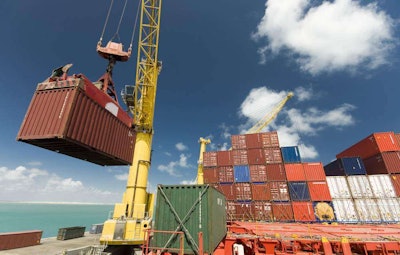
On Dec.2, the Los Angeles/Long Beach Harbor Employers Association announced it had not reached agreement with the International Longshore and Warehouse Union Local 63 Office Clerical Unit. POLB had three container terminals open while POLA had one.
As reported last week, POLB spokesman Art Wong has estimated the strike has resulted in a work stoppage for the 5,000 to 6,000 truckers serving the nation’s busiest ports.
After the clerical union began striking Nov. 25, other ILWU workers have refused to cross OCU picket lines. Negotiations have been on-going while the union worked without a contract for 30 months. On Dec. 1, the union rejected LA/B HEA’s offer, the shipping agency and terminal operator association stated.
That proposal would have required employers to call in temporary workers and hire new employees even if there was not work for them and a guarantee against layoffs. The average annual OCU wage-and-benefits package would be more than $190,000 over the next 3.5 years, the association said.
The 51 jobs the union said had been outsourced no longer existed due to “normal attrition” such as retirements and deaths, it added.
The Retail Industry Leaders Association asked Obama Nov. 29 to intercede and consider options including the Taft-Hartley Act. In October 2002, President Bush used the 1947 labor law for the first time in decades to end an 11-day work stoppage.
U.S. Sens. Barbara Boxer and Dianne Feinstein (both D-Calif.), have asked the parties to settle, as has Los Angeles Mayor Antonio Villaraigosa.
Los Angeles Executive Director Geraldine Knatzon has said the strike has resulted in ships diverting to other ports, including to Mexico.









